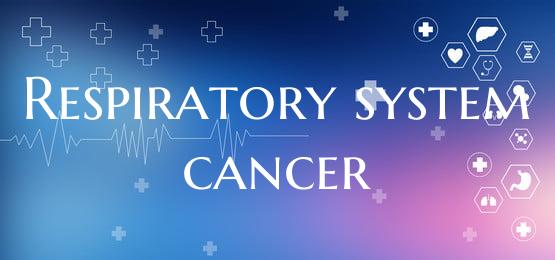
Respiratory system cancer
The respiratory system is a vital part of the human body responsible for breathing, which supplies oxygen to the body's cells and removes carbon dioxide. Unfortunately, like other organs in the body, the respiratory system can be affected by cancer. Respiratory system cancer refers to the abnormal growth of cells in the lungs or other parts of the respiratory system, leading to the formation of tumors.
There are several types of respiratory system cancers, with lung cancer being the most common and well-known. Lung cancer usually begins in the cells lining the bronchi, bronchioles, or alveoli of the lungs. Other types of respiratory system cancers include tracheal cancer, bronchial carcinoid tumors, and mesothelioma.
The main risk factors for developing respiratory system cancer include smoking, exposure to secondhand smoke, exposure to radon gas, asbestos, or other carcinogens, and a family history of lung cancer. Symptoms of respiratory system cancer may include persistent cough, chest pain, shortness of breath, coughing up blood, hoarseness, and unexplained weight loss.
Diagnosis of respiratory system cancer typically involves imaging tests such as X-rays, CT scans, and MRIs, as well as biopsies to examine tissue samples for cancerous cells. Treatment options for respiratory system cancer depend on the type and stage of the cancer but may include surgery, chemotherapy, radiation therapy, targeted therapy, immunotherapy, or a combination of these approaches.
Early detection and treatment of respiratory system cancer are critical for improving prognosis and quality of life. Many cases of lung cancer are diagnosed at later stages when the cancer has already spread, making treatment more challenging. Therefore, it is essential to prioritize lung cancer screening for individuals at high risk, such as current or former smokers.
In conclusion, respiratory system cancer is a serious condition that affects the lungs and other parts of the respiratory system. Understanding the risk factors, symptoms, and treatment options for respiratory system cancer can help individuals make informed decisions about their health and seek timely medical care when needed.